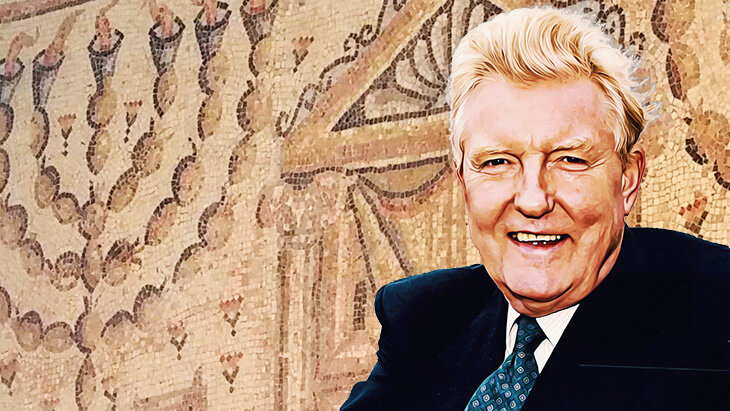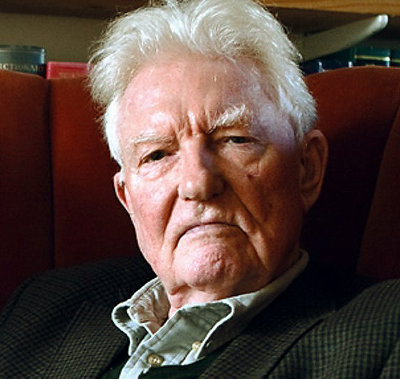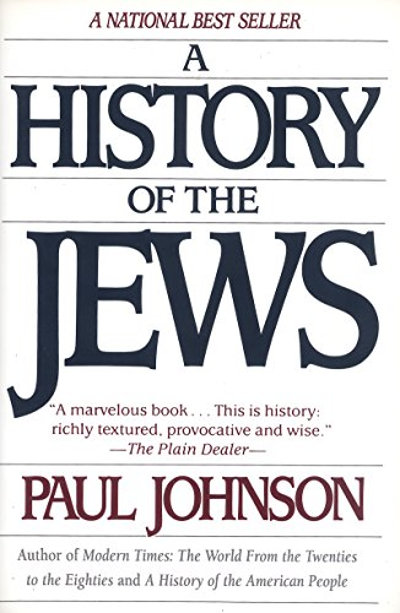 Vampire Weekend's Surprising Jewish Stories
Vampire Weekend's Surprising Jewish Stories


4 min read
The author of A History of the Jews has passed away at 94.
Paul Johnson, a prolific British newspaper and magazine columnist and popular historian, who passed away on Thursday, January 12, 2023 at the age of 94.
In over 50 books which Mr. Johnson wrote or edited, he explored the histories of Christianity, Judaism, Britain, the United States, and dozens of figures including George Washington, Napoleon, Churchill, Socrates, Mozart, and many others. A restless intellect and fluid writer, he made history come alive for millions of readers.

His most famous quote amongst Jews is probably this one that comes from his popular book, A History of the Jews:
“...(T)he world without the Jews would have been a radically different place. Humanity might have eventually stumbled upon all the Jewish insights. But we cannot be sure.
All the great conceptual discoveries of the human intellect seem obvious and inescapable once they had been revealed, but it requires a special genius to formulate them for the first time. The Jews had this gift. To them we owe the idea of equality before the law, both divine and human; of the sanctity of life and the dignity of human person; of the individual conscience and so a personal redemption; of collective conscience and so of social responsibility; of peace as an abstract ideal and love as the foundation of justice, and many other items which constitute the basic moral furniture of the human mind.
Without Jews it might have been a much emptier place.”
Johnson was born into a working class, Catholic family in Manchester in 1928. He was a brilliant student and won a scholarship to Oxford. After a stint in the army, where he rose to the rank of Captain, Johnson wrote for a number of left-wing magazines. In books and articles, he championed high culture, panning some modern trends he found insultingly un-intellectual, from the James Bond movies to pop music.
In 1965, he became editor of the left-leaning New Statesman, though he resigned five years later, devoting his time to writing books full time. Johnson eventually became known as a conservative thinker and penned a number of articles for Britain’s right-wing (and decidedly non-intellectual) Daily Mail newspaper. An iconoclast until the end, he told reporters that the only value that was consistent throughout his long, peripatetic life was his strong Catholic faith and his sense of right and wrong.

A History of the Jews, published in 1987, was one of his most influential books. The New York Times called it a “tour de force,” and “a remarkable achievement.” Reviewer Arthur Hertzberg observed that Johnson differed from most other historians in not holding up assimilation as the end goal of Jewish history. Instead, Johnson displayed a sense of wonder about Jews and Judaism, conveying his admiration along with his scholarly analysis. Hertzberg wrote:
At the very end of the book Mr. Johnson rises beyond most of the contemporary writers about Jewish history… A succession of authors have told the story of Jewish experience as leading toward the acceptance of the Jews, by themselves and others, as ''just like everybody else.'' Mr. Johnson knows that this is not so. Jews are not, even now, like everybody else.
Mr. Johnson understands that the continuing struggle against anti-Semitism has not been the meaning of Jewish history. Jews have persisted because they kept trying to be what they thought they should be: ''The Jews believed themselves created and commanded to be a light to the gentiles and they have obeyed to the best of their considerable powers,'' (Johnson writes).
In his 580-page masterpiece, Johnson traces the arc of Jewish history from ancient times to the modern State of Israel, describing the inner life of Jewish communities in the Middle East and Europe (a major criticism is that he failed to closely examine some Sephardi communities) and bringing Jewish history vividly to life. His praise for Jews alienated some historians who accused Johnson of not being more critical. “No people has been more fertile in enriching poverty or humanizing wealth, or in turning misfortune to creative account” than Jews, Johnson asserted at the end of this book.
Johnson forcefully condemned antisemitism. “What strikes the historian surveying antisemitism worldwide over more than two millennia,” he wrote, “is its fundamental irrationality. It seems to make no sense… In the whole of history, it is hard to point to a single occasion when a wave of antisemitism was provoked by a real Jewish threat (as opposed to an imaginary one).”
His History of the Jews, as well as Paul Johnson’s scores of other books and thousands of articles, are a plea for scholarly understanding, intellectual rigor, and rationality. He could be a gadfly and a contrarian, but throughout his long life, Johnson strove to understand history and to help others learn from our past. He will be missed.
